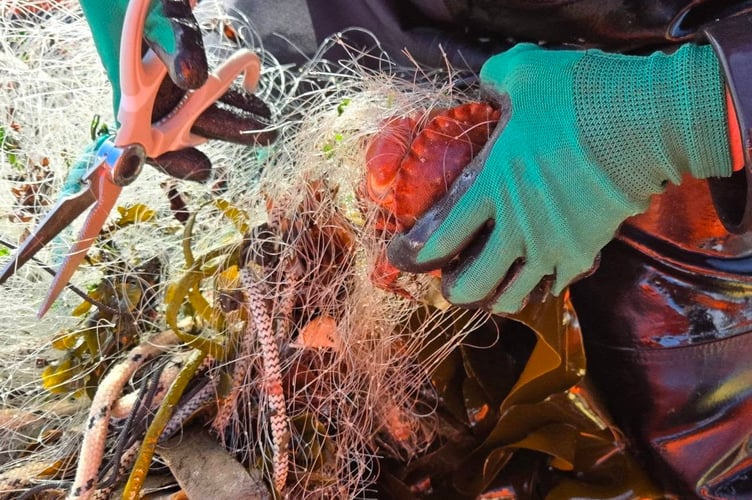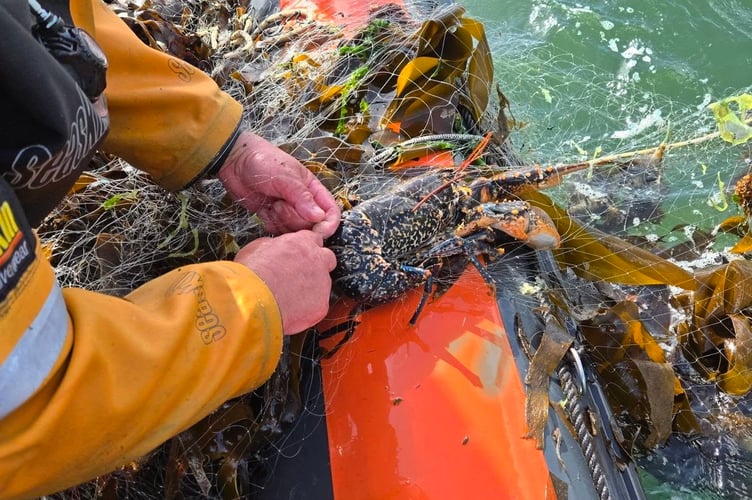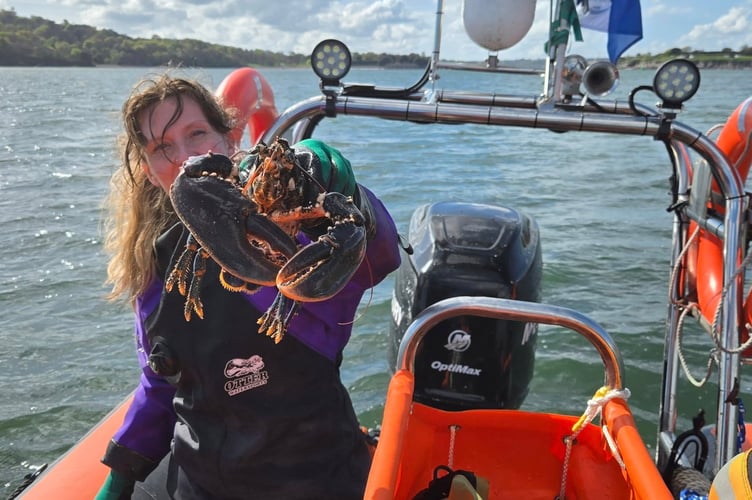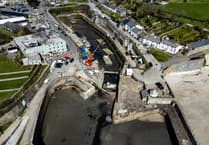BENEATH the surface of Plymouth South National Marine Park, a deadly trap lay hidden – an abandoned fishing net stretching over 400 metres, silently claiming the lives of countless marine creatures.
Discovered near Drake's Island, the massive monofilament net had ensnared dozens of fish, seabirds like shags, crabs, and lobsters, turning a vibrant marine habitat into a watery grave.
Marine conservation volunteers from Menheniot-based charity Fathoms Free spent five gruelling hours extracting the ghost net, revealing the devastating toll of abandoned fishing gear on local wildlife.
Luke Bullus – who is part of Fathoms Free, based out of Menheniot – said: “It was honestly one of the worst ones we’ve done in quite a long time.”

The team at Fathoms Free, a charity which protects marine wildlife and the environment for everyone’s benefit by removing ALDFG (abandoned, lost, or otherwise discarded fishing gear) and other marine debris from the coastal waters of Cornwall and Devon, initially responded to a report from Devon and Severn IFCA concerning the abandoned monofilament net in Plymouth Sound that needed dealing with “as soon as possible”.
In addition to the initial report from IFCA, the team said they also received some images from a concerned member of the public showing a monofilament net tangled over rock and disappearing into the water.
Luke added: “The net stretched across the sea floor for over 400 metres, and was snagged on rocks and kelp along its entire length, which, along with the tidal flow, really tested the team's skills, experience, and stamina.
“With a team of divers in the water and another team on the surface, the progress was slow and steady.”

The dedicated volunteers worked ‘relentlessly’ for hours all afternoon and into the evening to safely recover the net and free the marine life that was still alive.
Tangled in the net, which stretched hundreds of metres underwater, were dead birds, including shags, and an oystercatcher.
There were also dozens of lobsters of all sizes, dozens of edible and spider crabs of all sizes, wrasse, cat sharks, bull huss and countless decomposing fish that were unidentifiable due to the condition they were in - acting as bait to the other marine life in the area.
Luke said: “Our hard-working volunteers freed dozens of animals from all species, but many more were sadly not so lucky.”
The term ghost gear refers to fishing equipment which is lost or discarded of in the ocean.

According to the WWF report ‘Stop Ghost Gear: The most deadly form of marine plastic debris’ between 500,000 and 1,000,000 tons of fishing gear are entering the ocean every year.
Last month, Fathoms Free volunteers assisted Cornwall IFCA and the Environment Agency deal with a large and deadly monofilament net reported near the shore at Cremyll, very close to Mount Edgcumbe.
The team worked relentlessly in the muddy conditions, retrieving hundreds of metres of deadly netting and carefully cutting free any lucky live crustaceans to return them to the water, along with scores of marine life that hadn't been so fortunate.

.png?width=209&height=140&crop=209:145,smart&quality=75)
.jpeg?width=209&height=140&crop=209:145,smart&quality=75)

